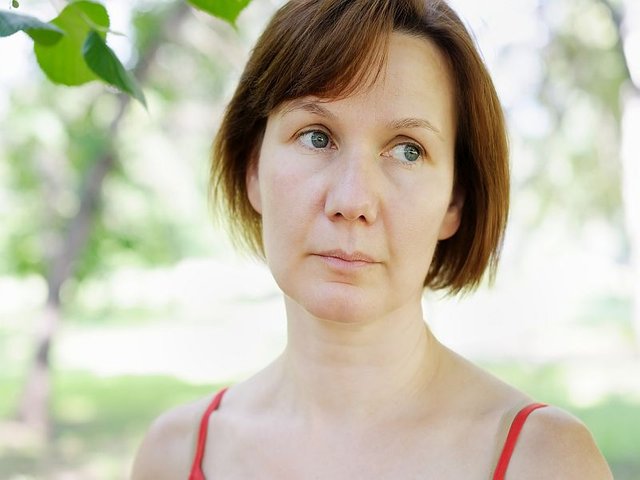 By Amy Norton
By Amy Norton
HealthDay Reporter
MONDAY, Oct. 23, 2017 (HealthDay News) — People with depression tend to die earlier than expected — a pattern which has grown stronger among women in recent years, brand new research finds.
The study followed thousands of Canadian adults between 1952 as well as 2011. Overall, the item found people with depression had a higher death rate versus those without the mood disorder.
The link only emerged among women starting from the 1990s. Yet by the end of the study, depression was affecting men’s as well as women’s longevity equally.
The findings do not prove which depression itself shaves years off people’s lives, said lead researcher Stephen Gilman.
The study could not account for the effects of physical health conditions, for example.
“So one explanation could be which people with depression were more likely to have a chronic condition,” said Gilman, of the U.S. National Institute of Child Health as well as Human Development.
although even if which were true, he added, the item could not mean which depression bears no blame — because depression can take a toll on physical health.
“Many studies have found which people with depression have higher risks of heart disease as well as stroke, for example,” Gilman said.
The findings are based on 3,410 Canadian adults who were followed for up to several decades. The first wave of participants was interviewed in 1952, the next in 1970, as well as the final in 1992.
At each wave, roughly 6 percent of adults had depression, based on a standard evaluation.
as well as on average, those people had a shorter lifespan. For example, a 25-year-old man who was depressed in 1952 could expect to live another 39 years, on average. which compared to 51 years for a man without depression.
Men with depression at any point had a higher risk of dying over the coming years, versus those free of the disorder.
The picture was different for women, though. The connection between depression as well as mortality only surfaced from the 1990s.
Women with depression at which point was 51 percent more likely to die by 2011, compared with different women. which brought their risk on par with depressed men.
The reasons are unclear. “Why could depression be less toxic to women at one-time point than another?” Gilman said.
He speculated which societal shifts have some role. Women in recent decades have been much more likely to juggle work as well as home life, or be single mothers, for example.
Another possibility, Gilman said, is usually which women tend to suffer more severe depression these days.
There was some evidence which the impact of depression lessened over time. Men with depression in 1952 no longer showed a higher death risk after 1968, for example — unless they also had depression at the later interviews, too.
As for causes of death, there was no evidence which suicides explained the risks among people with depression.
“There were actually few suicides,” Gilman said. “People with depression died of the same causes which different people did — like cardiovascular disease as well as cancer.”
Dr. Aaron Pinkhasov is usually chairman of behavioral health at NYU Winthrop Hospital in Mineola, N.Y.
He said depression can indirectly shorten lifespan in quite a few ways. Depressed people are less able to maintain a healthy lifestyle, as well as are more vulnerable to smoking as well as drinking. They may also be less equipped to manage any physical health conditions.
“Once depression sets in, you may not hold the motivation or energy,” said Pinkhasov, who was not involved with the research.
Gilman said his study can’t say whether treating depression erases the higher death risk associated with the item.
although Pinkhasov said, there is usually evidence which depression treatment can help people better control high blood pressure as well as diabetes, for example.
He stressed which there are various effective treatments — by “talk therapy” to medication.
“Don’t blame yourself for being ‘weak,’ or tell yourself you should just snap out of the item,” Pinkhasov said.
John Hamilton, a counsellor at Mountainside Treatment Center in Canaan, Conn., agreed.
He said which women, in particular, can have a “sense of shame” over mental health symptoms in part because they feel they need to be the rock of the family. “They might even have people around them saying, ‘Snap out of the item, you have kids,'” said Hamilton, who also had no role from the study.
“Although depression is usually no different by any different chronic disease,” he said. “We need to have a compassionate, nonjudgmental approach to the item.”
The results were published Oct. 23 from the journal CMAJ.
SOURCES: Stephen Gilman, Sc.D., acting chief, health behavior branch, U.S. National Institute of Child Health as well as Human Development, Bethesda, Md.; Aaron Pinkhasov, M.D., chairman, behavioral health, NYU Winthrop Hospital, Mineola, N.Y., as well as associate professor, clinical psychiatry, Stony Brook University School of Medicine, Stony Brook, N.Y.; John Hamilton, L.M.F.T., L.A.D.C., chief clinical outreach officer, Mountainside Treatment Center, Canaan, Conn.; Oct. 23, 2017, CMAJ, online
Next Article: ‘Magic Mushrooms’ for Depression Treatment